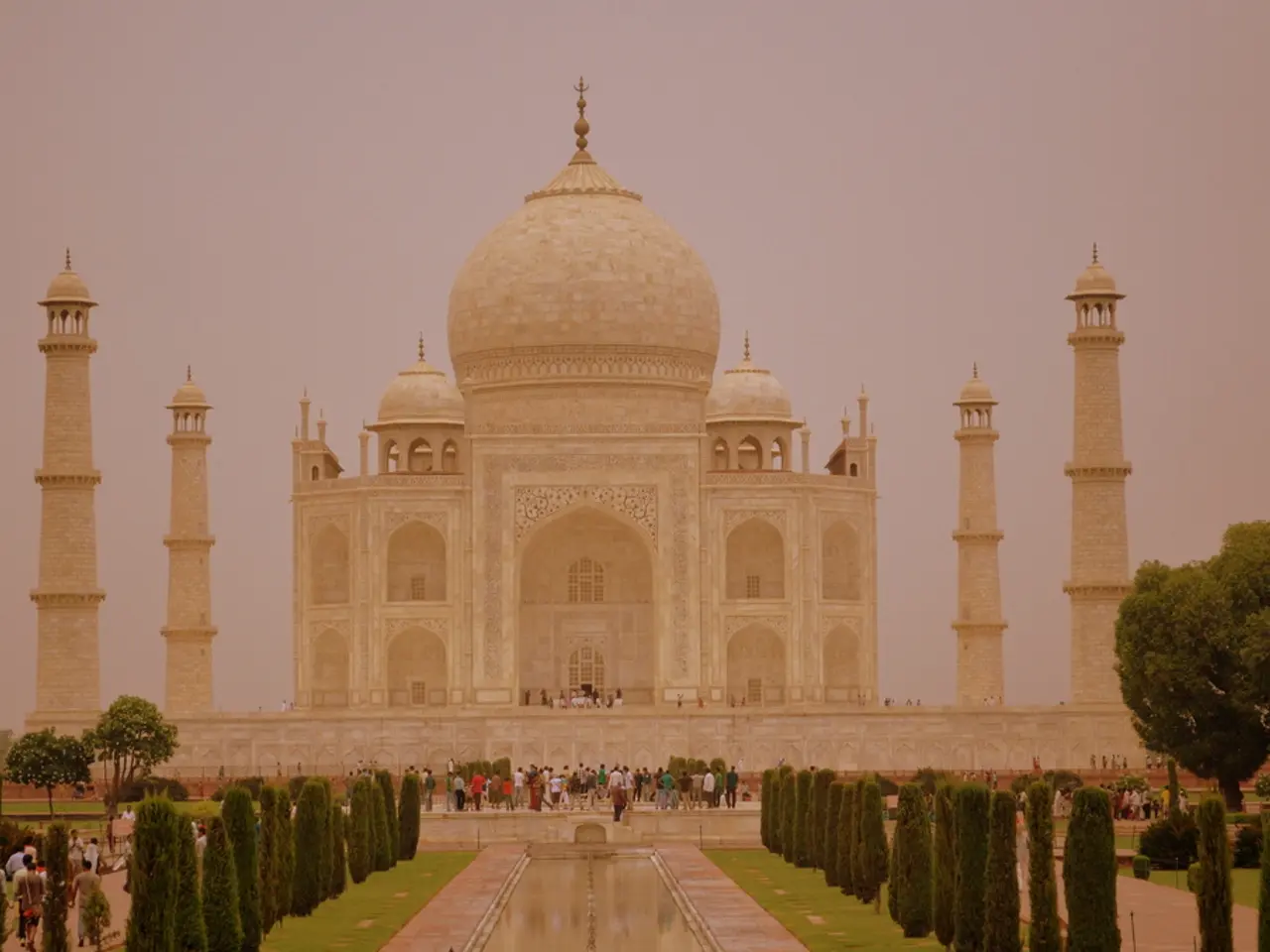Modi, Indian prime minister, assures farmer protection and promotes self-reliance against rising trade tensions with Trump's tariffs.
India is currently embroiled in a trade conflict with the United States, as the U.S. administration has imposed tariffs of up to 25% (and potentially higher) on Indian imports. This dispute, initiated by the U.S. under President Trump, aims to pressure India to lower trade barriers and reduce its imports of Russian oil, which the U.S. views as financially supporting Russia’s war in Ukraine.
The tariffs, which affect over 55-70% of India's exports to the U.S., have severely impacted Indian exports and disrupted corporate supply chain strategies, stalling investments by firms intending to move production to India. India strongly criticizes these tariffs as unjustified and harmful, emphasizing its need to import Russian oil for affordable energy given global disruptions.
Indian Prime Minister Narendra Modi addressed the nation on Independence Day, vowing to stand as a barrier against any policy that threatens the interests of farmers. However, Modi did not mention tariffs or the U.S. in his speech, only alluding to them in a speech last week.
The tariffs were imposed after five rounds of trade negotiations between New Delhi and Washington collapsed due to disagreement on opening India's farm and dairy sectors and stopping Russian oil purchases. The new import tax will raise duties on some Indian exports to as high as 50 percent.
The potential impact of this conflict includes significant economic harm to Indian exporters, stalled foreign investment, and a cooling of the broader U.S.-India partnership. The tariffs not only disrupt trade but also complicate geopolitical cooperation, with India caught between U.S. sanctions pressure on Russia and its own energy security needs.
India has warned of "red lines" in trade talks and canceled key defense engagements with the U.S., highlighting the tariffs’ spillover effect into strategic relations and arms sales. The Indian foreign ministry expressed hope for relations with the United States to move forward based on mutual respect and shared interests.
In an effort to navigate the trade war and mitigate damage, India is pursuing multiple strategies. Modi called for self-reliance and urged the manufacturing of various goods, including fertilizers, jet engines, and EV batteries. This push for domestic production could potentially lessen India's dependence on foreign imports, including those from the U.S.
This trade conflict threatens economic growth in India and complicates the strategic partnership with the U.S., with key sectors such as agriculture and industry facing disruption due to tariff barriers. The dispute delays arms sales and damages broader bilateral ties, making it a significant challenge for both nations to overcome.
[1] The New York Times [2] The Economic Times [3] The Hindu [4] Bloomberg
- Despite India's efforts to mitigate the damage from the trade conflict with the U.S., the tariffs have led to significant disruptions in key sectors such as agriculture and industry, as reported by The Economic Times.
- The trade dispute between India and the U.S., escalating war-and-conflicts tensions and disrupting geopolitical cooperation, is making headlines in The New York Times and other global news outlets.
- The ongoing political negotiations between India and the U.S., affected by the trade conflict and tariffs on Indian imports, are intensifying as both nations grapple with broader ramifications for their relationship, as reported by The Hindu and Bloomberg.







